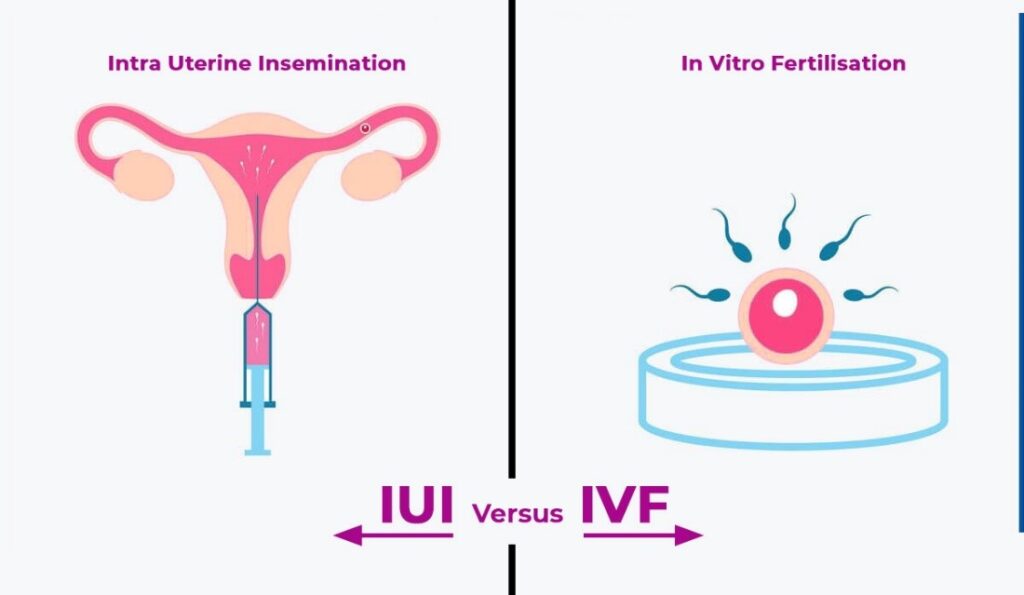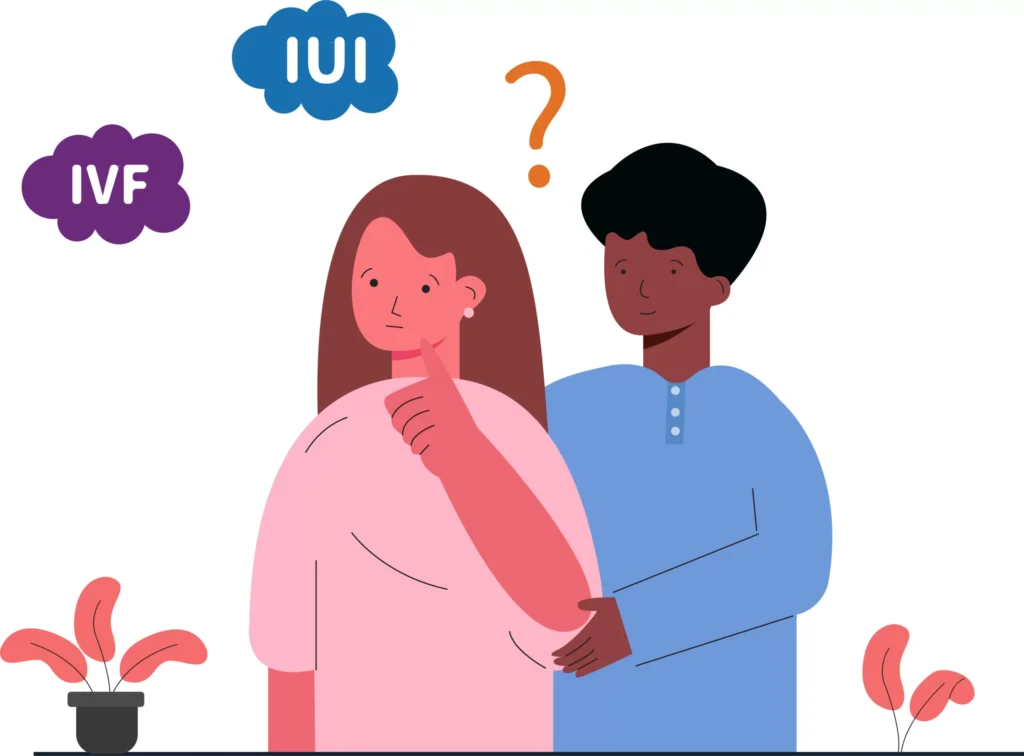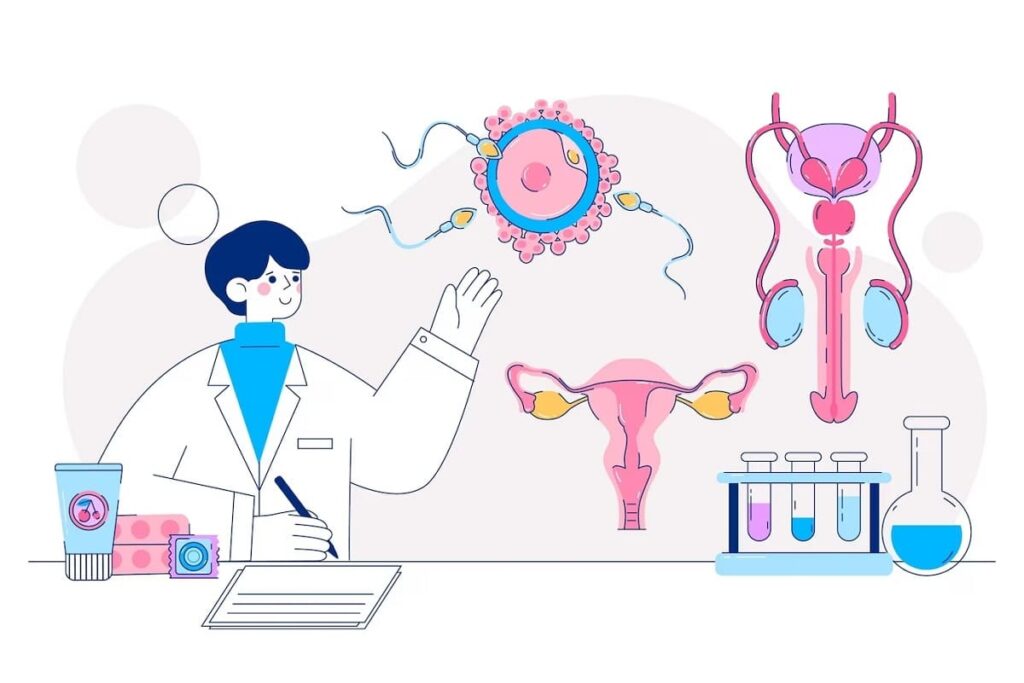
INTRODUCTION
When it comes to fertility treatments, two of the most common procedures are In Vitro Fertilization (IVF) and Intrauterine Insemination (IUI). Both have helped countless couples achieve their dream of parenthood, but they are different in many ways. At Astha IVF in Gorakhpur, understanding these differences can help you make an informed decision about which treatment might be right for you.
UNDERSTANDING IVF & IUI
What is IVF?
IVF stands for In Vitro Fertilization. It’s a process where eggs are extracted from a woman’s ovaries and fertilized by sperm in a lab. Once the embryos develop, one or more are transferred to the woman’s uterus.

The IVF Process
The IVF process involves several steps:
Ovarian Stimulation: Hormone injections are given to stimulate the ovaries to produce multiple eggs.
Egg Retrieval: A minor surgical procedure is performed to collect the eggs.
Fertilization: The eggs are mixed with sperm in a lab to create embryos.
Embryo Transfer: One or more embryos are placed into the uterus.
Success Rates of IVF
IVF success rates vary based on factors such as age, health conditions, and the quality of the embryos. Generally, younger women have higher success rates. |
What is IUI?
IUI stands for Intrauterine Insemination. It’s a process where sperm is directly inserted into a woman’s uterus around the time of ovulation to facilitate fertilization.

The IUI Process
| Ovarian Stimulation: Medication may be given to stimulate ovulation. |
| – Sperm Collection and Preparation: Sperm is collected and prepared in a lab. |
| – Insemination: The prepared sperm is inserted directly into the uterus. |
Success Rates of IUI
IUI success rates depend on factors like age, the cause of infertility, and the use of fertility drugs. Typically, the success rate is lower than that of IVF.
Comparing IVF and IUI
IVF is more expensive and requires more time and effort than IUI due to its complex procedures, including multiple doctor visits, medications, and surgeries. However, IVF generally boasts higher success rates, particularly for older women or those with specific infertility issues. While IVF carries risks such as multiple pregnancies, ovarian hyperstimulation syndrome (OHSS), and surgical complications, IUI poses lower risks, though it can still result in multiple pregnancies and mild ovarian hyperstimulation. IVF is typically recommended for women with blocked fallopian tubes, severe male infertility, or unsuccessful previous treatments, whereas IUI is often suggested for couples with unexplained infertility, mild male infertility, or cervical mucus problems.
Why Choose Aastha IVF, Gorakhpur
Aastha IVF in Gorakhpur is an excellent choice for fertility treatment due to its use of cutting-edge technology and state-of-the-art facilities, ensuring the best possible outcomes for patients. The clinic boasts a highly skilled and experienced medical team dedicated to providing top-notch care. Patients at Astha IVF receive personalized care tailored to their unique needs and circumstances. The numerous success stories from Astha IVF highlight their commitment to helping couples achieve their dream of parenthood.
Choosing between IVF and IUI is a significant decision that depends on various factors, including medical history, personal preferences, and financial considerations. Astha IVF in Gorakhpur offers comprehensive consultations to help you make the best choice for your fertility journey
